Businesses have long relied on third-party data to drive targeted advertising campaigns and interactions. It has helped them track their website visitors’ behaviors and interests, drive effective targeted advertising, and inform their user experience. But we’re increasingly moving towards a future in which this data is no longer available or as effective. So how can businesses that have depended on third-party cookies plan to pivot?
We talked to some industry experts to find out. Here’s what they had to say.
Gorgias
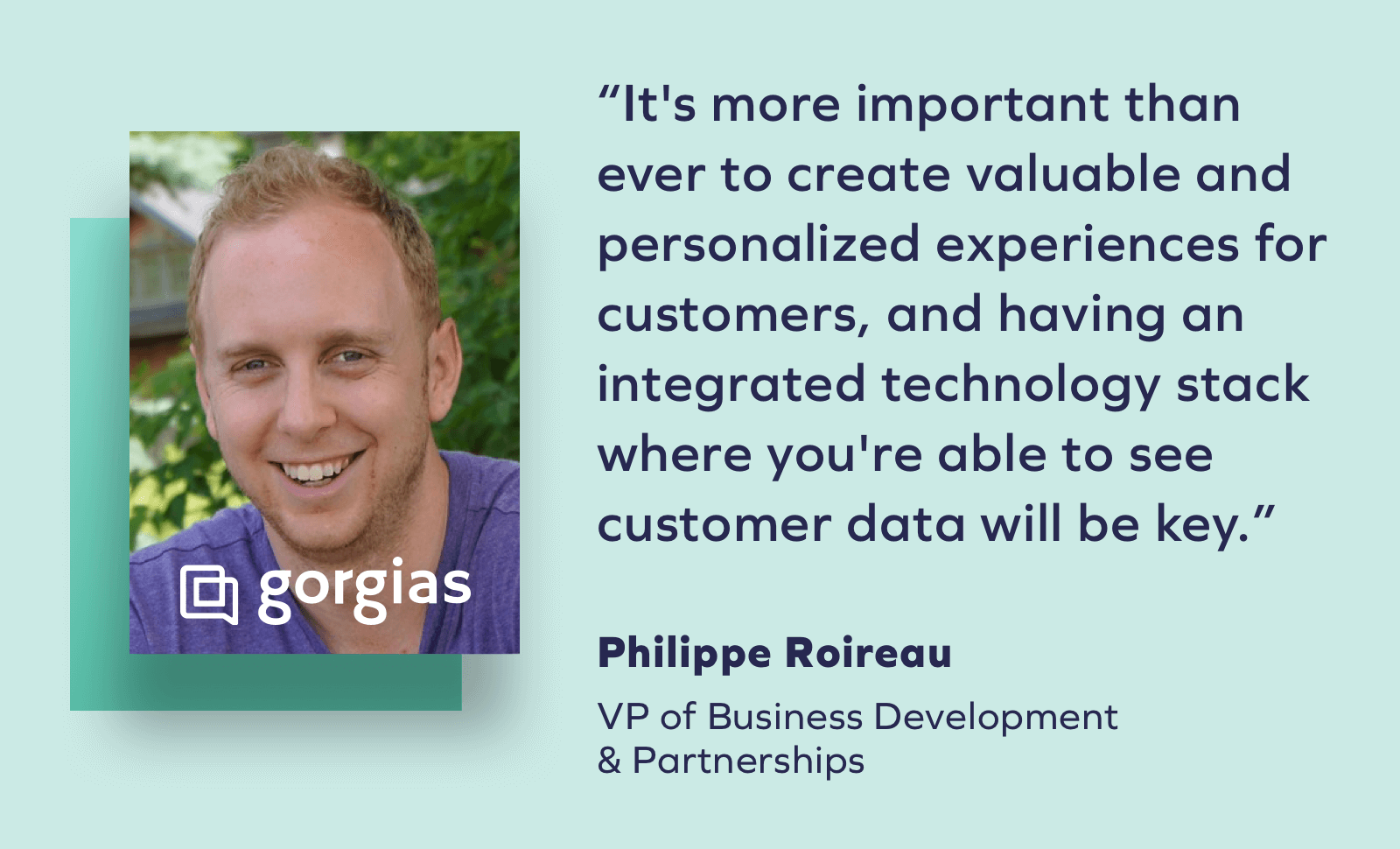
“As privacy changes continue to shift, it’s more important than ever for DTC brands to create valuable and personalized experiences for customers that create trust and encourage them to engage and opt-in to communications. Having an integrated technology stack where you’re able to quickly see customer data and their preferences at any time will be key for brands to successfully adapt and create those experiences.”
— Philippe Roireau, VP of Business Development & Partnerships at Gorgias
Jetshop
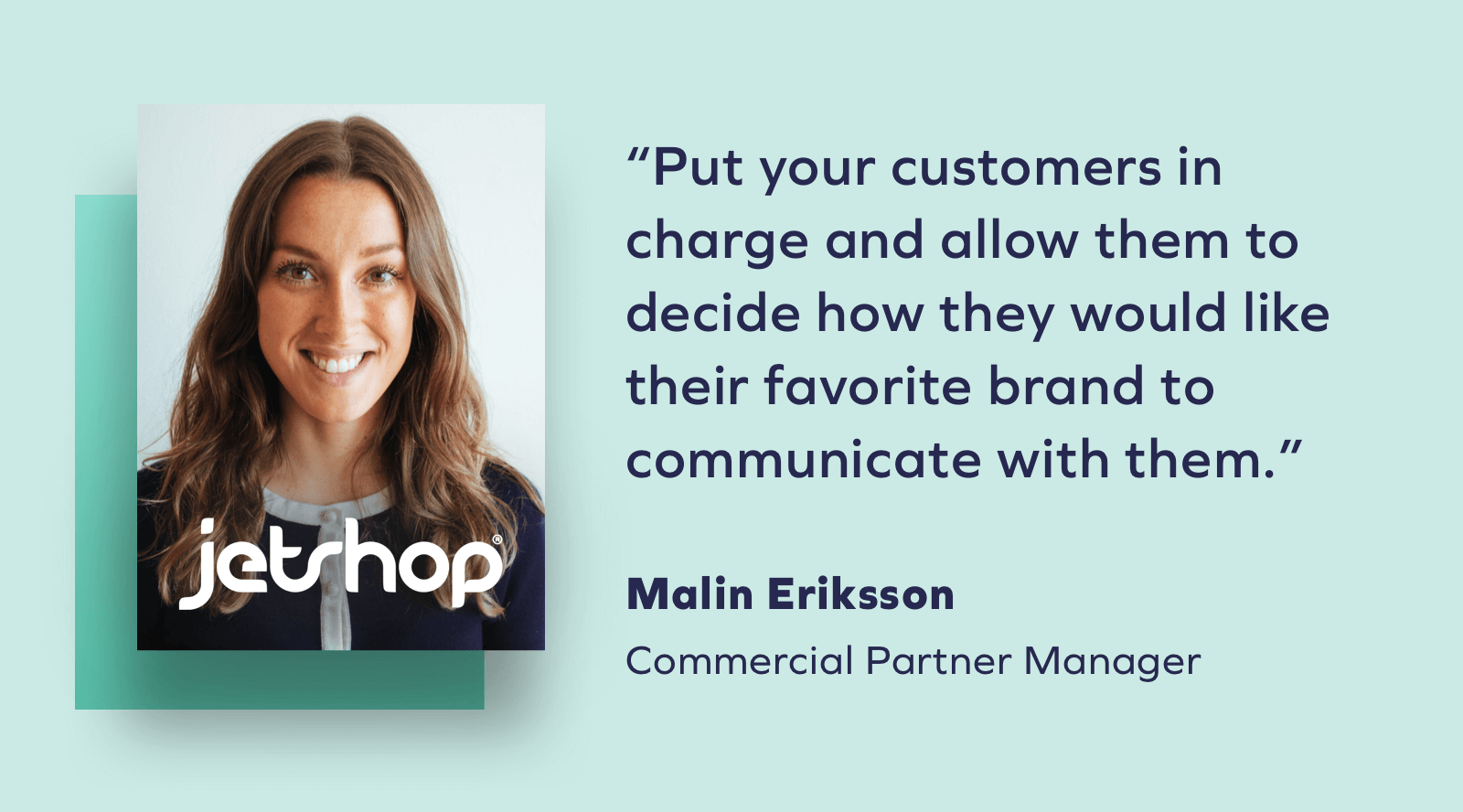
“Now, more than ever, customers have the possibility to take back control of their data. Brands need to make a choice whether they will let their customers decide what data they would like to share and create a long-term strategy based on that, or go for upcoming workaround solutions to complement third party cookies, which may disrespect ‘life after cookies.’
What will your strategy be?
Put your customers in charge and allow them to decide how they would like their favorite brand to communicate with them. For example, by offering the possibility for site login, which allows you to use personalization to communicate with your customers more relevant and adjust your advertising. Some of your customers will value their integrity high and adjusting your communication may not be an option, while others will allow you to track their digital footsteps because of a higher value.
At Jetshop, we gather collaborative data through backend APIs to power backend integrations, thus enabling brands to understand customer behavior in life after cookies. This can be used to complement personalization.
While providing user intelligence and getting data continuously, brands also need to rethink how this collective data can be used to attract customers. Adjust your marketing strategies and reshape your email marketing communication to be sharp and relevant.
Also, let’s not forget the importance of:
- Reviews: prove your credibility and trustworthiness as a brand.
- Loyalty: offer value to your customers in exchange for their data and re-engage your customers.
- Customer Service: offer customer experiences that go beyond expectations that lead to word of mouth; go ahead and wow them!”
— Malin Eriksson, Commercial Partner Manager at Jetshop
Daasity
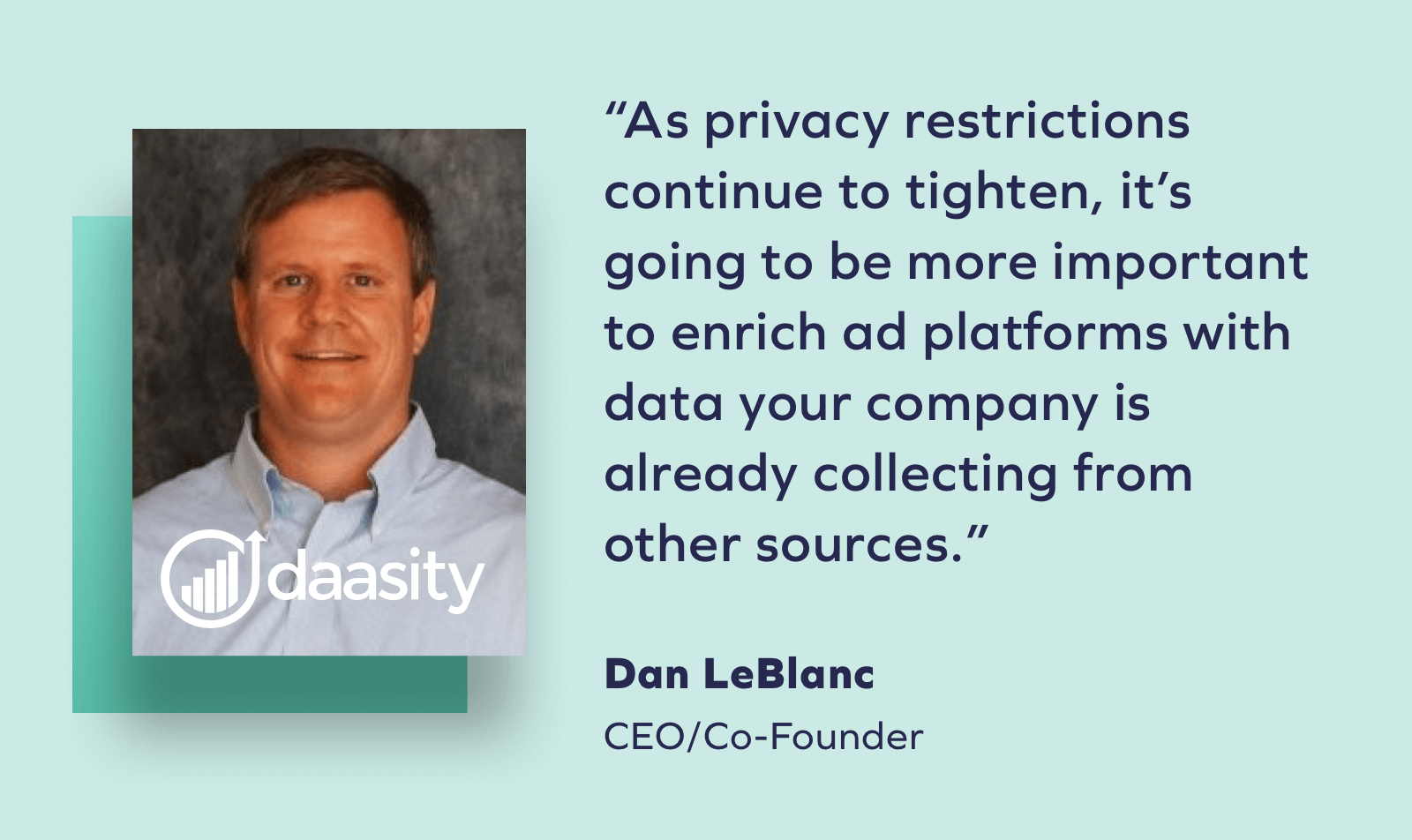
“As privacy restrictions continue to tighten the data that advertising channels can share, it’s going to be more important to enrich those ad platforms with data your company is already collecting from other sources. We’re seeing more of the brands we work with pass their sales, marketing, and operations data into the marketing channels to replace the data they are losing and create new more targeted customer experiences.”
— Dan LeBlanc, CEO/Co-Founder at Daasity
Wonder Media Network
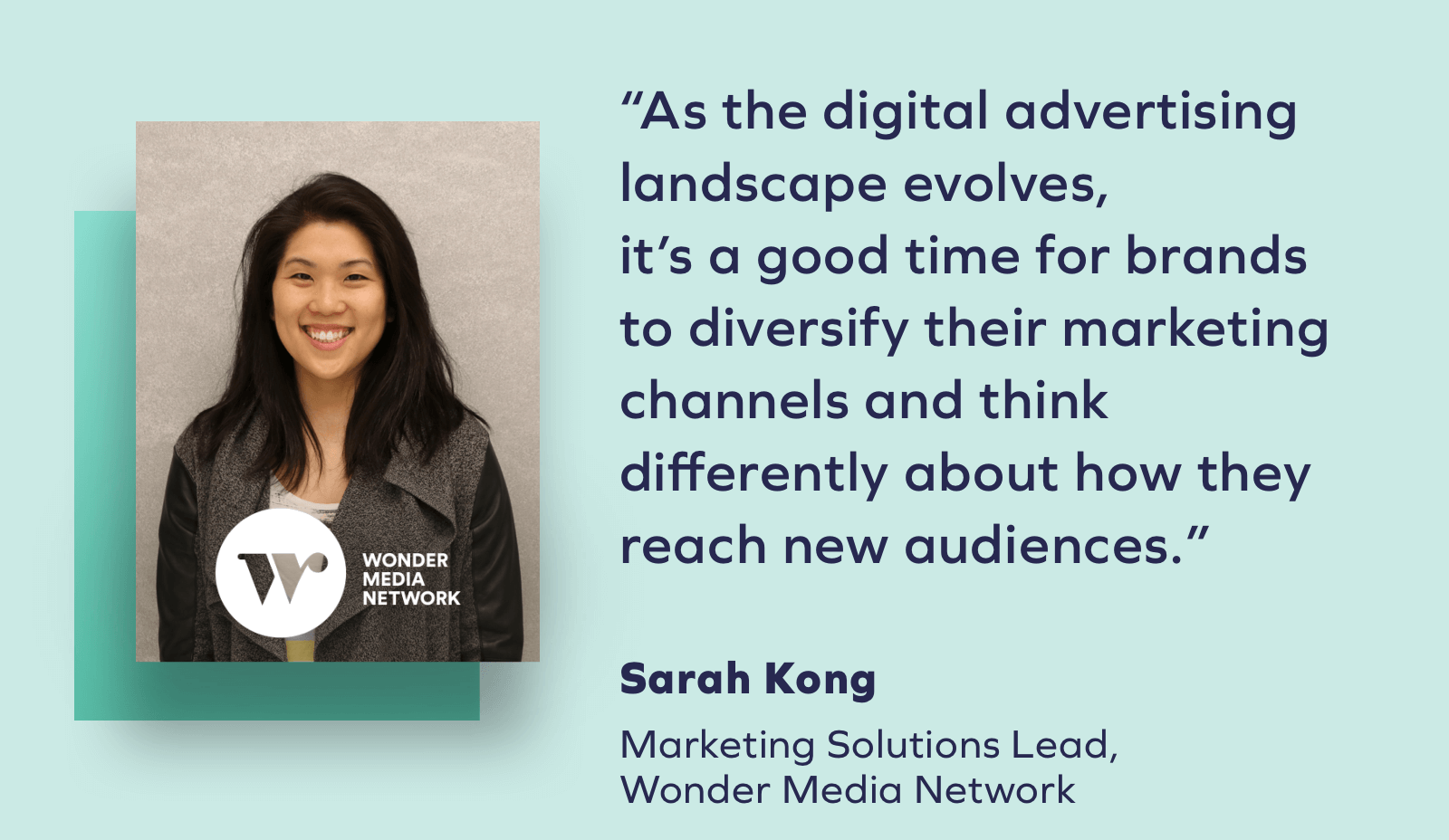
“As the digital advertising landscape evolves with limitations on targeting abilities, it’s probably a good time for brands to diversify their marketing channels and think differently about how they reach new audiences.
The podcasting space in particular is ripe for advertisers: it’s a growing industry — in listenership and sponsor spend — and audio storytelling is incredibly effective at building, affirming, or evening changing narratives (at a fraction of the cost of other media buys). Startup brands have done really well in this space, and we’re now seeing larger companies move in as they begin to realize the desirable real estate and audience data that podcasting provides.”
— Sarah Kong, Marketing Solutions Lead at Wonder Media Network
Vervaunt
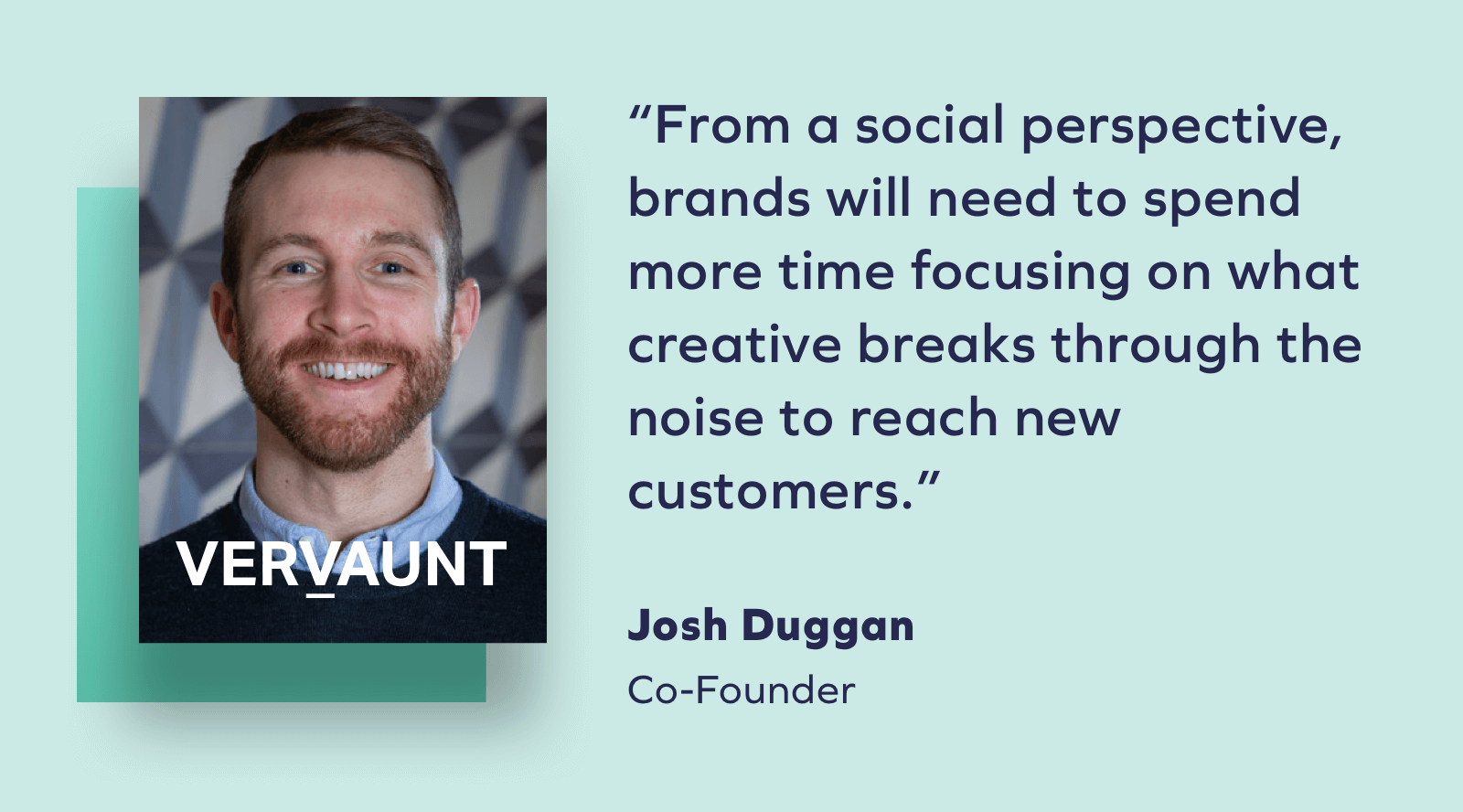
“There is currently a massive transformation across Google and Facebook, with both platforms moving away from highly targeted approaches and towards a strategy which is broader and less personalised.
From a social perspective, brands will need to shift focus to creative. With a lesser focus on targeting and more reliance on algorithms (see Facebook’s Discover commerce approach), brands will need to spend more time focusing on what creative breaks through the noise to reach new customers.
Once you have strong engagement rates from a Facebook perspective, brands will need to focus more on customer experience. Most retailers treat paid social and on-site experience separately. There needs to be a much bigger focus on the experience for net new customers when landing on site.”
— Josh Duggan, Co-Founder at Vervaunt
LiveArea
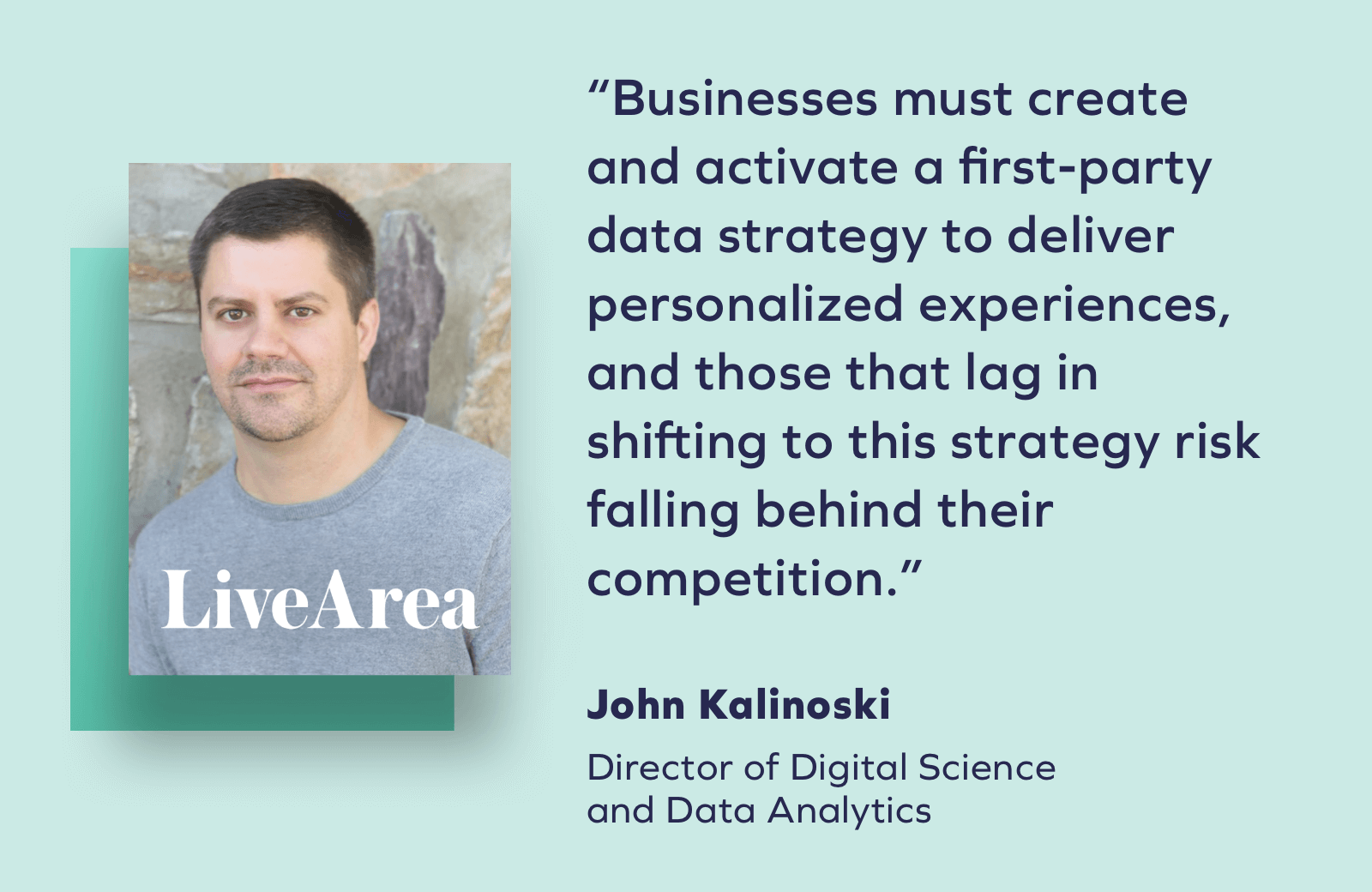
“Emerging regulations around the use of personal data are forcing businesses to adapt how they market and deliver personalized experiences to customers, and this will only grow more challenging as new regulations continue to roll out. With third-party cookies being phased out, first-party data is more valuable to marketers than ever.
Businesses must create and activate a first-party data strategy to deliver the personalized experiences customers expect, for new customers and to improve customer loyalty. Businesses that lag in shifting to a first-party strategy risk falling behind their competition.”
— John Kalinoski, Director of Digital Science and Data Analytics at LiveArea
deep3.DIGITAL
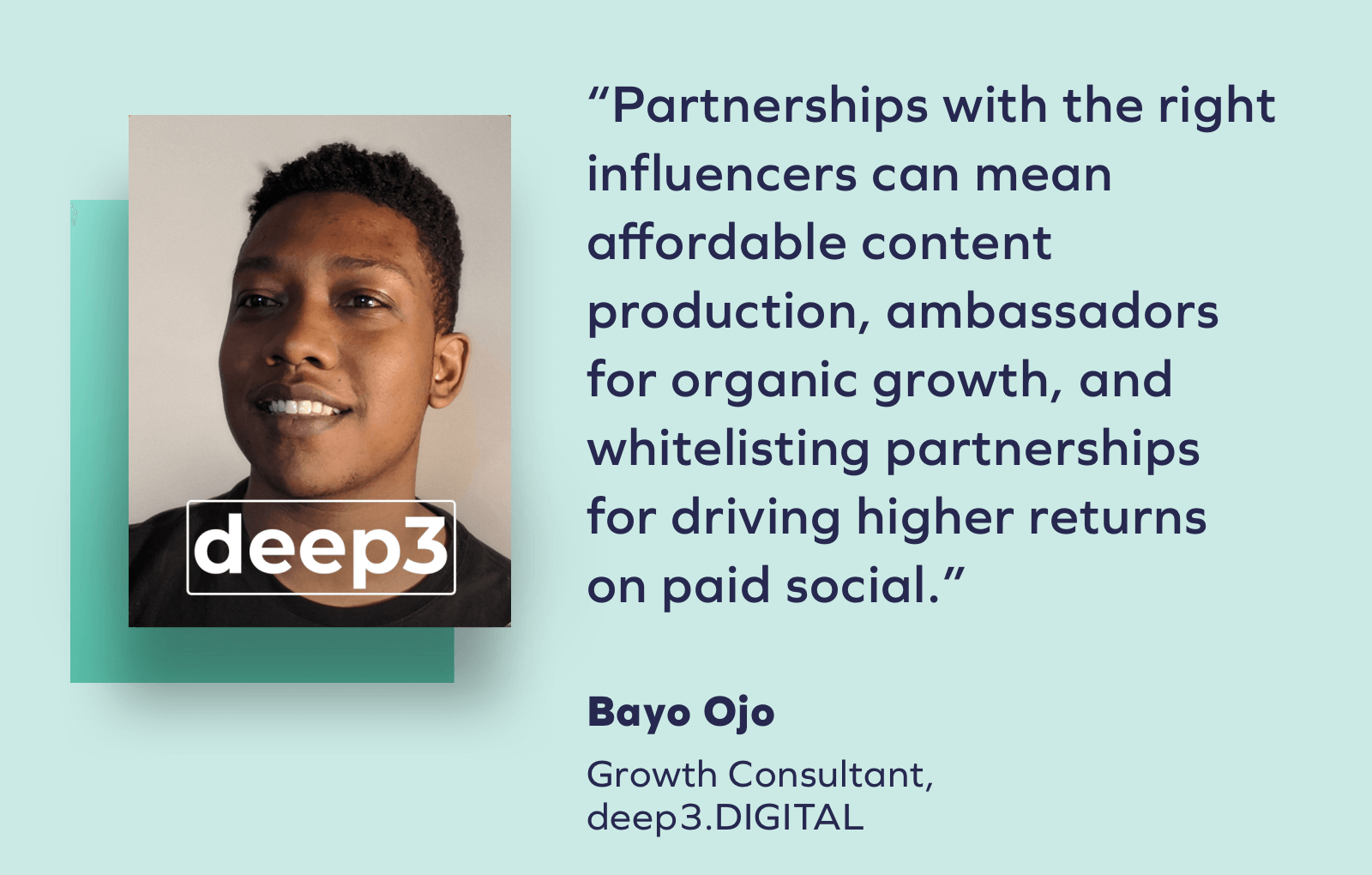
“With so many changes coming to the world of third-party data, plenty of clients and prospects are asking me how to approach influencers as an alternate channel for growth.
I see the main benefits as threefold. Partnerships with the right influencers can mean affordable content production, ambassadors for organic growth, and whitelisting partnerships for driving higher returns on paid social.
It’s less conventional than traditional channels where you don’t have to negotiate directly with the “media properties,” but can play a key role in growth.”
— Bayo Ojo, Growth Consultant at deep3.DIGITAL
Overdose
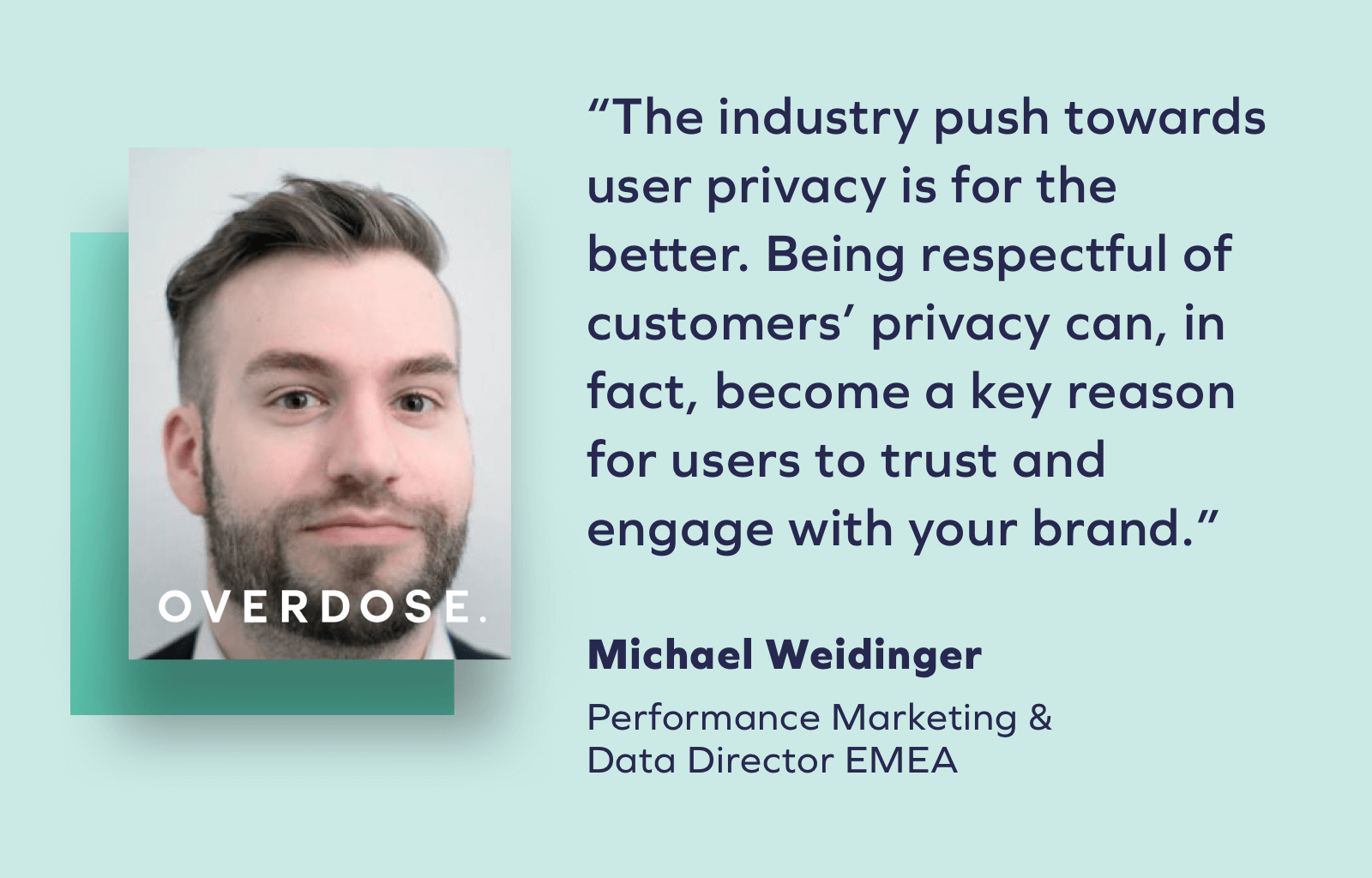
“The industry push towards user privacy is for the better and will drive the next round of innovation in marketing and analytics. Being respectful of customer’s privacy can, in fact, become a key reason for users to trust and engage with your brand.
It’s not just for industry biggies like the Facebooks and Googles to innovate; every business needs to invest strategically in enriching their first-party customer data.
In that light, the next two years will bring Customer Data Platforms (CDPs) to the forefront. However, brands need to remember that it’s not just about implementing a new platform. Brands that will thrive in this new world will be the ones who successfully align efforts across all web and marketing channels towards acquiring better customer data, and then operationalise those insights in acquisition and retention channels.”
— Michael Weidinger, Performance Marketing & Data Director EMEA at Overdose
Justuno
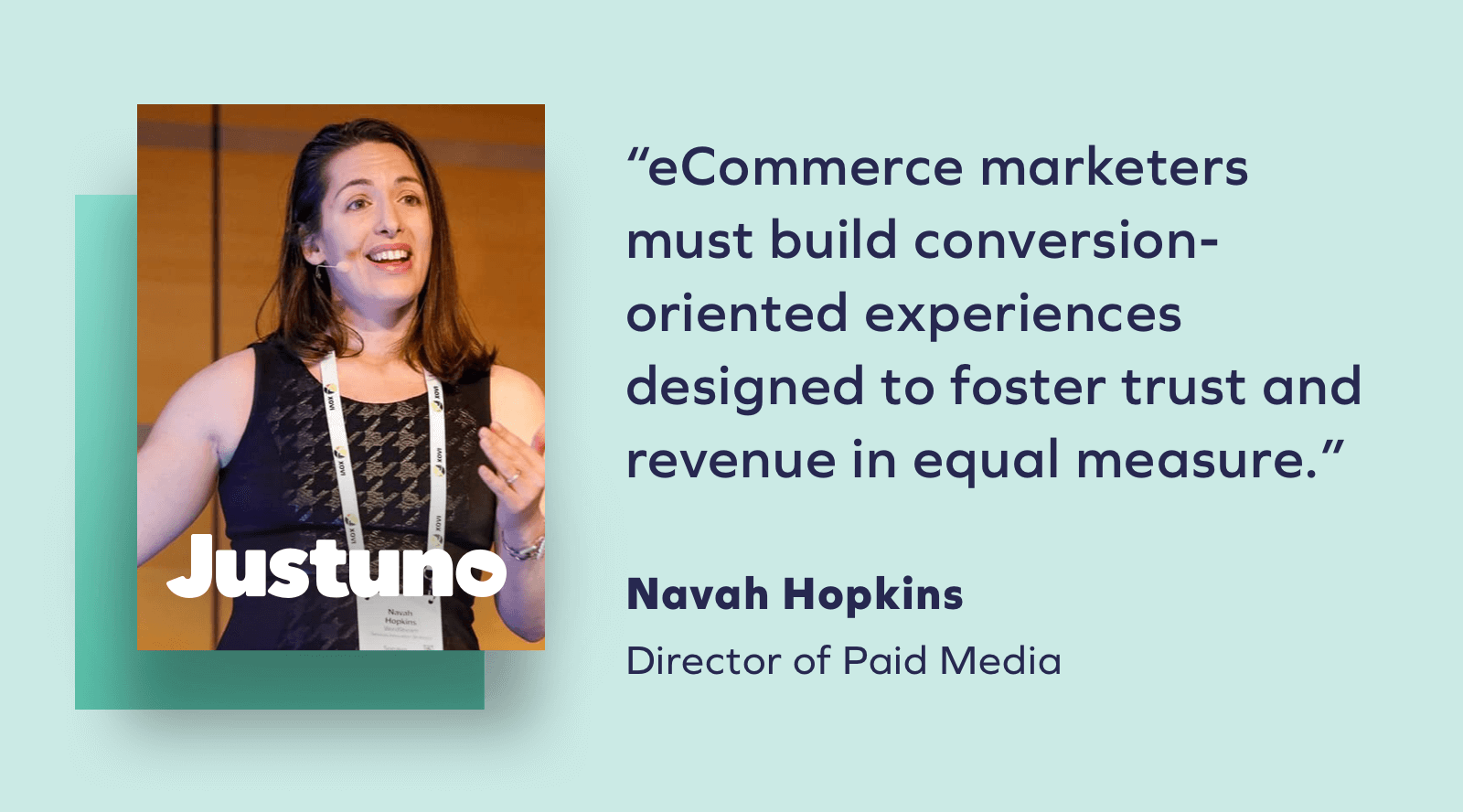
“eCommerce marketers must build conversion oriented experiences designed to foster trust and revenue in equal measure. Gone are the days where a brand could get away with blitzing their site with traffic to put tangential prospects into remarketing lists.
This isn’t a bad thing. Studies show that customer list audiences (where the user consents to share their contact information) outperform website traffic based audiences. By focusing more on on-site CRO (and feeding those leads back into ad platforms), brands can achieve greater ROI, while creating their own data hub.
Brands who leverage CRO, highlight reviews, and create easy to transact experiences will win.”
— Navah Hopkins, Director of Paid Media at Justuno
Direct Agents
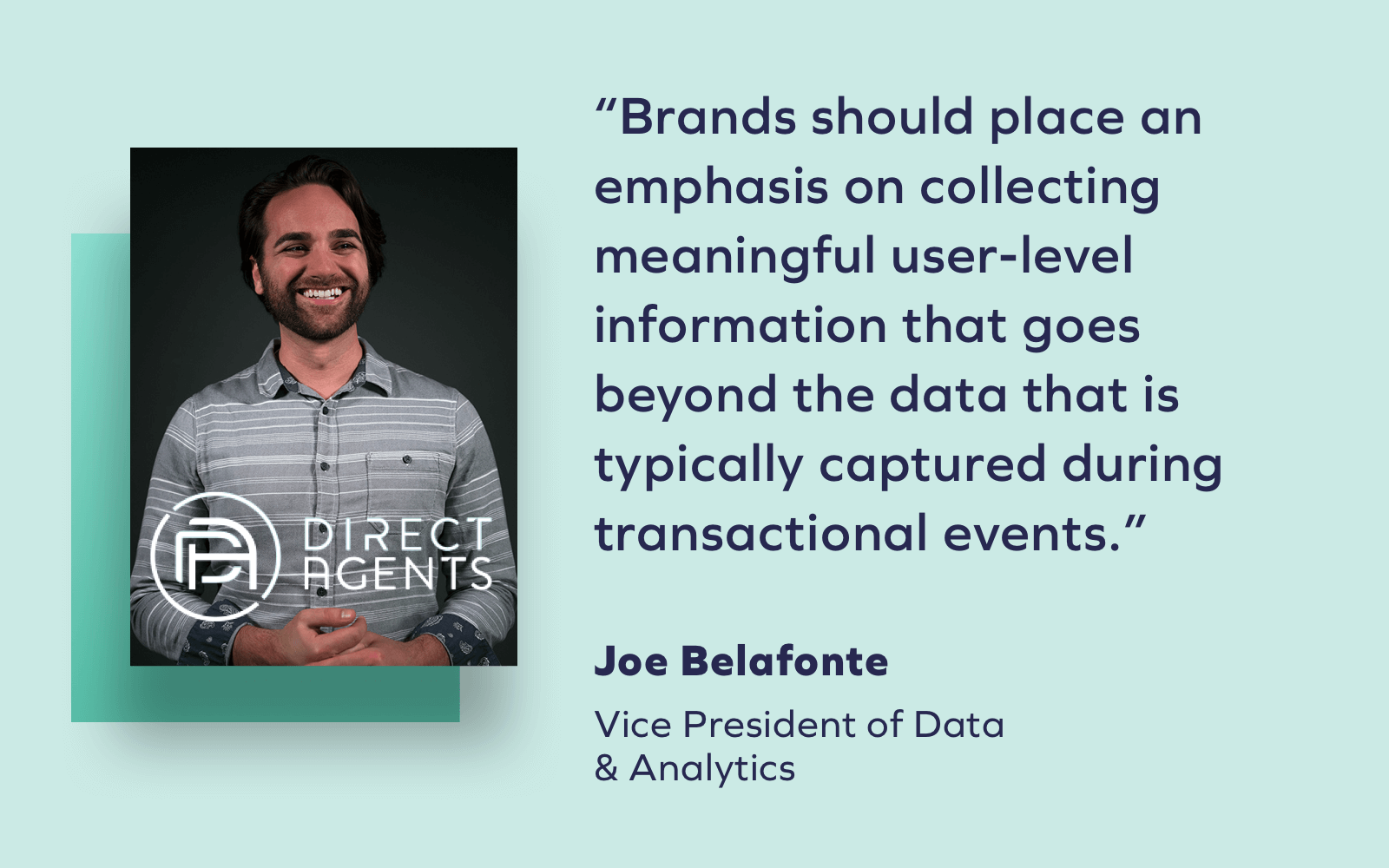
“To prepare, brands should place an emphasis on collecting meaningful user-level information that goes beyond the data that is typically captured during transactional events. For example, consider product category, sizing, and shopping preferences.
Paired with the correct martech, such as the increasingly popular Customer Data Platform (CDP), brands will be able to leverage this data to off-set and move beyond the impact of third party cookie blocking. This includes real-time media targeting and personalization, cross-device attribution, and increased loyalty with more effective communication; all in a privacy compliant manner.”
— Joe Belafonte, Vice President of Data & Analytics at Direct Agents
Listrak
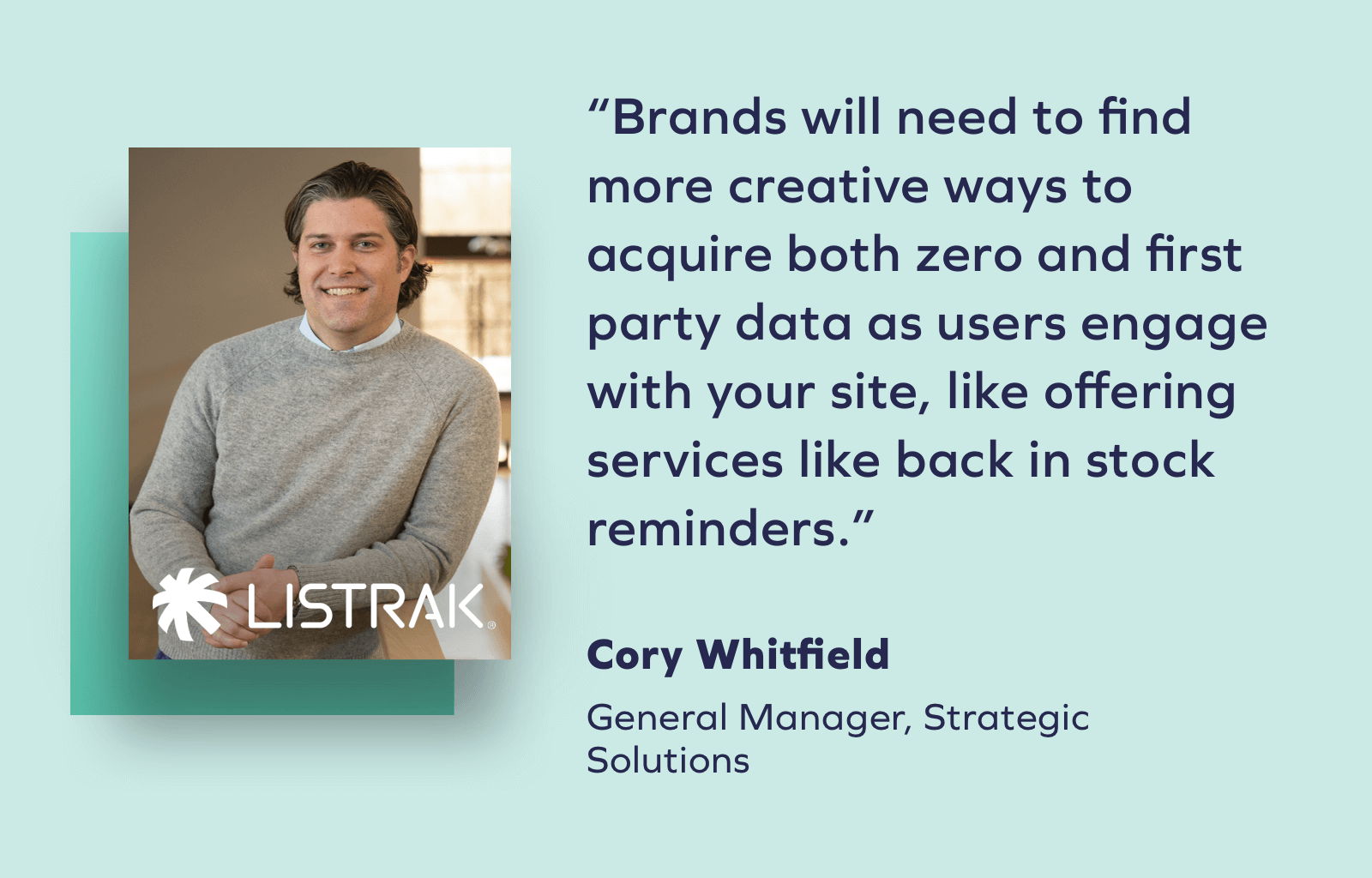
“Using first party data to inform personalized communication with shoppers will become more imperative, as will finding more creative ways to acquire both zero and first party data as users engage with your site. Listrak’s unique acquisition of first and zero party data such as regularly testing creative onsite acquisition of emails and mobile, for example, explicitly asking for back in stock reminders. These types of tactics allow our brands and retailers to elevate their efforts surrounding what’s already being collected without having to pivot strategy.”
— Cory Whitfield, General Manager, Strategic Solutions at Listrak
DataGrail
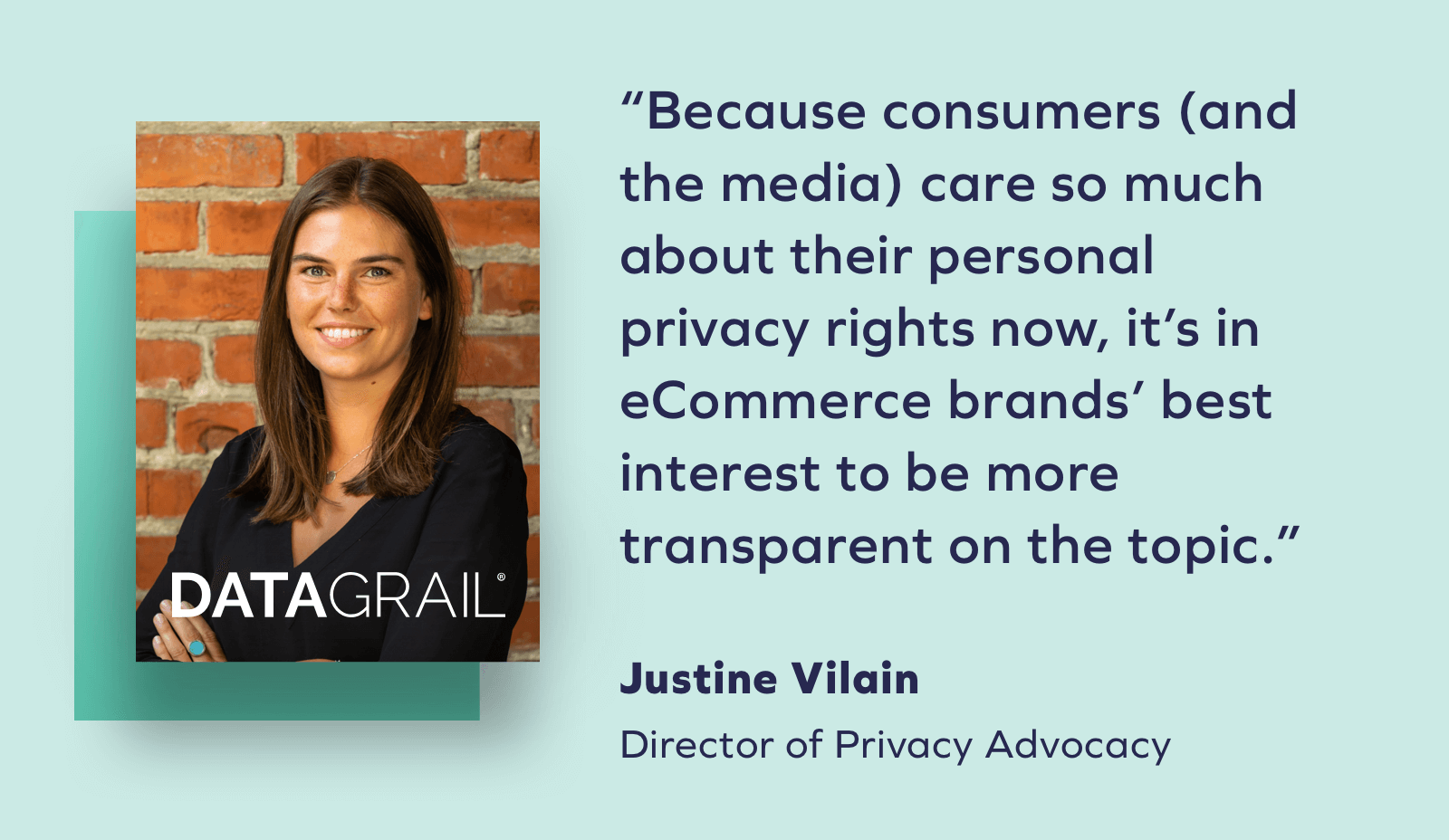
“Today, consumers are demanding more transparency and controls around how brands use their personal data, and governments around the world are enacting new privacy and security regulations.
Because consumers (and the media) care so much about their personal privacy rights now, it’s in eCommerce brands’ best interest to be more transparent on the topic. For example, Apple is showcasing their commitment to privacy as a competitive advantage, and we expect more major brands to embrace privacy as well. Change spurs innovation and there’s no doubt major brands will find new ways to personalize their customers’ experience while respecting privacy.
Brands should expect that more and more people will exercise their newfound privacy rights, as new regulations like CPRA and VCDPA take effect. This means brands need to be prepared to fulfill data subject requests (DSRs), where customers can request to access the personal data a company has for them, or even request to delete their personal data from the company’s records.
When you think about all the apps and platforms that modern brands rely on, through which customer data can flow, it becomes clear very quickly that understanding your company’s privacy footprint is critical. Too often, data mapping lives in a manual spreadsheet that is quickly out of date, and DSRs are fulfilled manually over weeks with engineers going into individual systems to access or delete the requestor’s data. Brands should be thinking about how they can automate and scale their ability to inventory their data systems and easily fulfill DSRs.”
— Justine Vilain, Director of Privacy Advocacy at DataGrail
Common Thread Collective
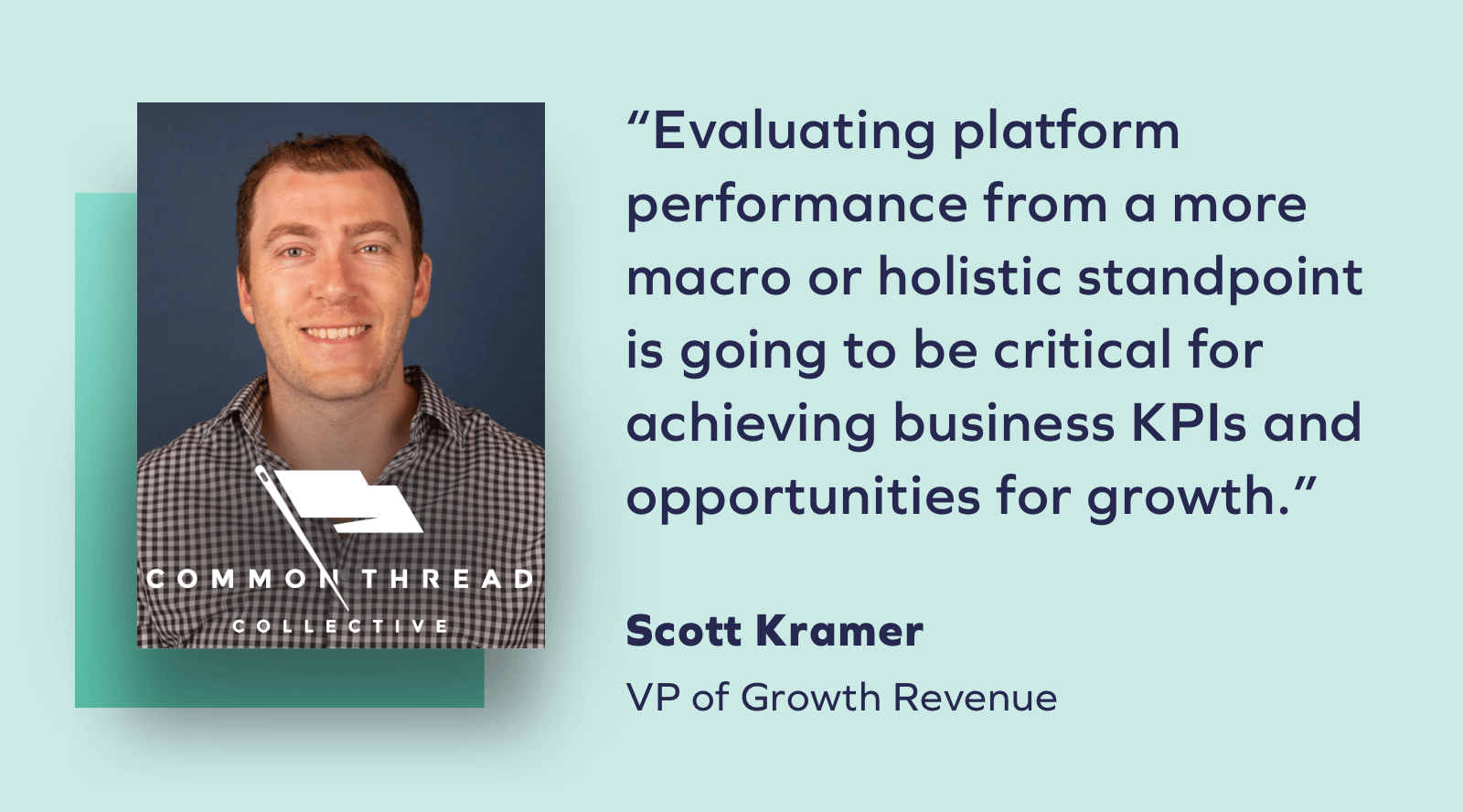
“With the ongoing changes to data privacy, the transparency of performance marketing platforms and their ability to report and track is going to look a lot different. Goals and reporting metrics need to be rethought and evaluating platform performance from a more macro or holistic standpoint is going to be ever more critical for achieving businesses KPI’s and opportunities for growth.”
— Scott Kramer, VP of Growth Revenue at Common Thread Collective
AdRoll
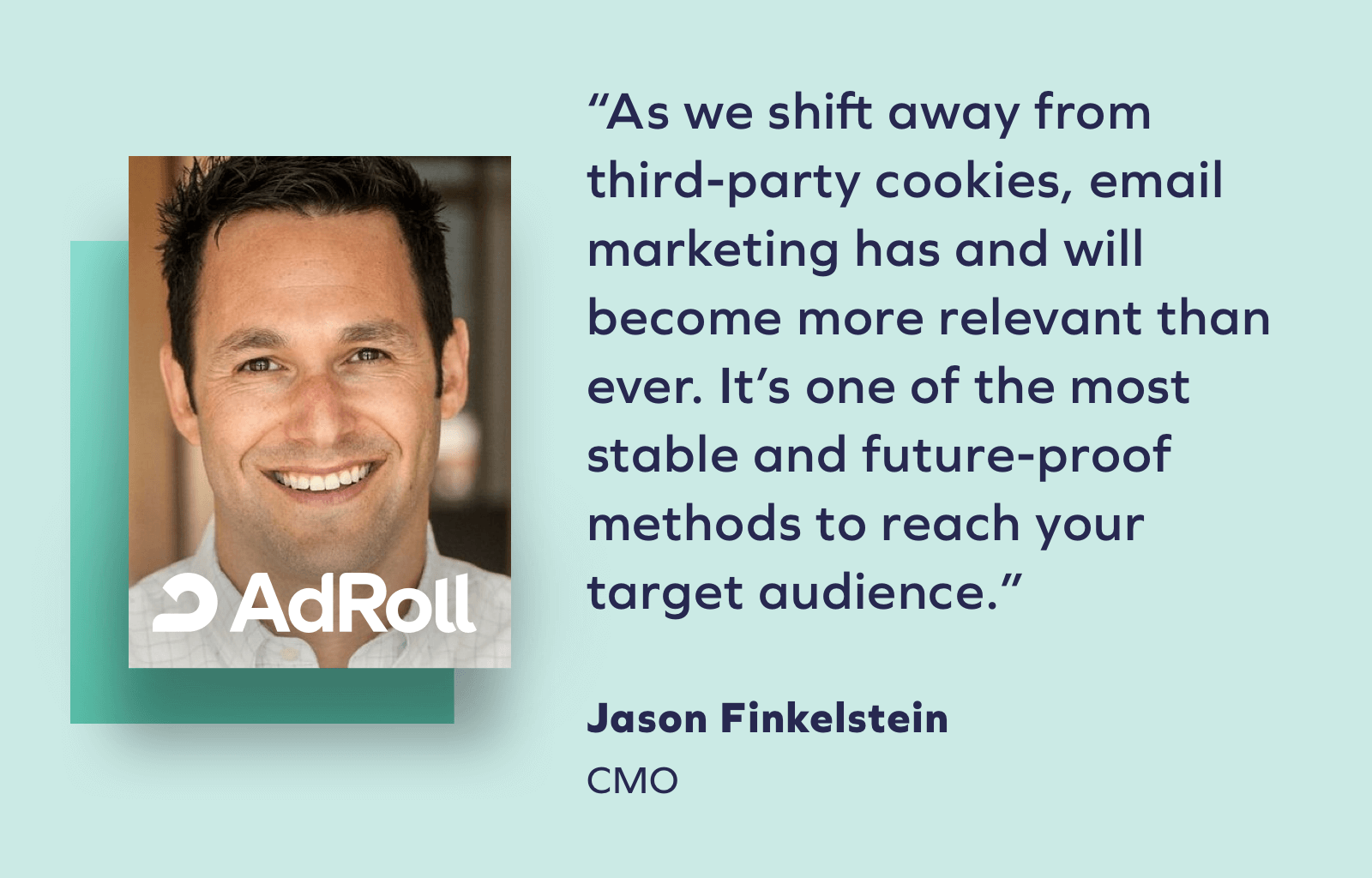
“Equipped with first-party data, you can directly connect with your targeted audience through email, SMS, social ads, and web ads. Emails, for example, should be a mainstay in every marketers’ toolbox for good reason — it’s one of the most stable and future-proof methods to reach your target audience. As we shift away from third-party cookies, email marketing has and will become more relevant than ever.”
— Jason Finkelstein, CMO at AdRoll
Got thoughts on how eCommerce brands can prepare for the impending cookie-pocalypse? Share your thoughts with us on Twitter.














 Join a free demo, personalized to fit your needs
Join a free demo, personalized to fit your needs